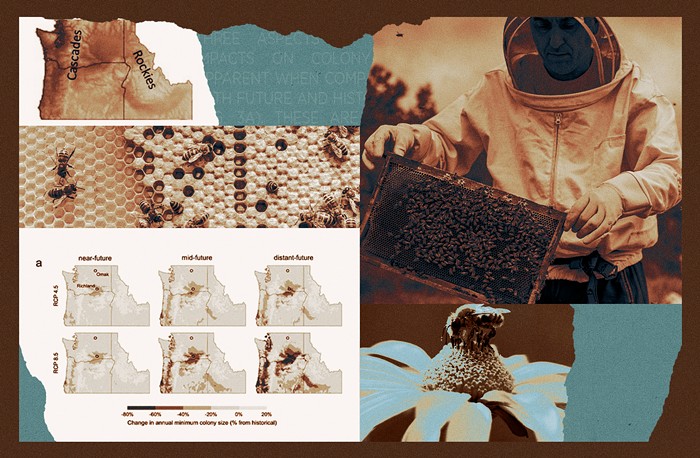
Today's queer science is going to be about love and survival.
The Connection Between Oxytocin and Empathy
There's a study floating around that I've seen mentioned several times this week, and it's not hard to understand why. The study supposedly concludes that people with medical conditions that suppress the release of oxytocin (a.k.a. the "love" hormone because of its role in human intimacy and trust relationships) are less capable of performing well on empathy tasks.
A couple of caveats: First, this study wasn't published in a peer-reviewed journal—or hasn't been yet—but it was presented at the Society for Endocrinology's annual conference in the UK. Second, it looks like the study worked with very small sample sizes. There were just 35 people "suspected of having reduced oxytocin" compared to a 20-person control. Without a bigger sample and replicating the results, I wouldn't trust the conclusions of this study as far as I could throw them.
That said, this isn't the first time scientists have studied a link between the expression of oxytocin and empathy. And it seems like, in the wake of a devastating presidential election, figuring out how to empathize with one another is a question on a lot of people's minds.
The Oxytocin and Empathy Feedback Loop
In 2009, researchers at Claremont Graduate University wanted to study how empathy actually works in the human body. There was very little known about how empathy works on a biological level, they said, though they suspected oxytocin had something to do with it.
Oxytocin is a brain hormone. It's synthesized in an almond-sized part of the brain called the hypothalamus, which handles much of our unconscious needs (food, water, body temperature, and the like) and then travels to other parts of the brain that control social and emotional processing. In other studies, higher oxytocin levels positively correlated with people doing "prosocial" things, like giving money to strangers, and similar results held true for people who received shots of oxytocin through the nose.
In the Claremont study, which was published in the Annals of the New York Academy of Sciences, 145 college students played games that would assess their generosity and trust towards strangers, then had their blood taken for analysis. Some students were also asked to watch a video of a father talking about his terminally-ill child, and after, they were asked to rate their emotions while watching.
For the students who watched the video, oxytocin levels increased in their blood by 47 percent compared to students who watched an emotionally neutral video. Researchers also found a positive link between how much empathy the students experienced and how much oxytocin was discovered in their blood. Increased oxytocin levels also held a positive correlation with generosity in the games the students played.
The researchers concluded that their work, for the first time, directly showed that watching another human's distress led to an oxytocin release. Further, they said, higher oxytocin levels led to more empathetic behaviors. Oxytocin, it would appear, really can be a vehicle for empathy.
Why Do We Care?
I've been thinking a lot over the last week about what it means to be vulnerable. Often we're taught that the "strong" thing to do when confronted with pain is to buck up, find a solution, and work. This was me after the election. All week, I wanted to cry and I couldn't. Instead, I put myself to work and felt numb.
But humans are capable of empathy for a reason. It appears we're even wired to respond to other humans' distress with the release of a hormone that makes us more generous. And it seems these two things—being capable of experiencing others' pain and being generous—are related.
At Stanford University, evolutionary biologist Joan Roughgarden has proposed a critique of Darwin's theory of sexual selection. By his ideas about sexual selection and survival of the fittest, competing "selfish genes" determine natural selection. According to Roughgarden, however, that model leaves out a ton of behaviors in the animal kingdom that don't subscribe to traditional gender roles and reproductive strategies. Instead, Roughgarden has proposed an alternate view of natural selection and evolution. Social selection, she says, allow animals to develop traits that qualify them for certain groups—and inclusion in these groups results in safety for offspring. This model of evolution prizes traits like teamwork over selfishness.
I don't know which model of evolution is the correct one. What I do know, though, is that sometimes maybe the strongest, most radical thing to do is to allow yourself to be vulnerable, to quiet the social conditioning that tells us to toughen up, and to let the body do the work for us. Maybe that will also allow us to better connect with one another.
Stay safe, everyone. Love is our survival.
Science News is now Queer Science!, a column about scientific discoveries and controversies that are busting binaries in our understanding of humans, animals, plants, and minerals. I am still futzing with the format. Got feedback? E-mail me.














